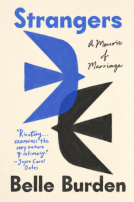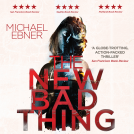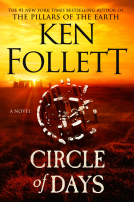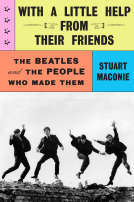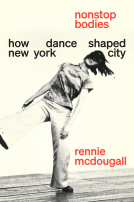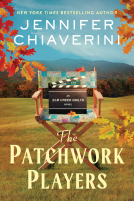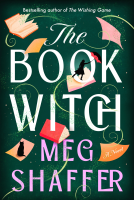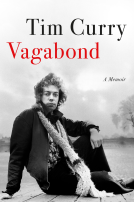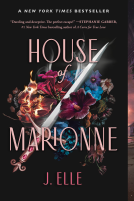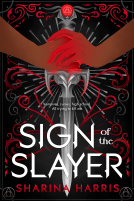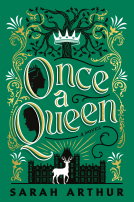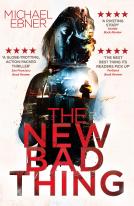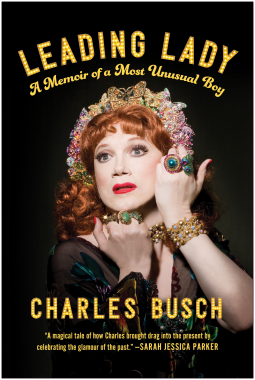
Leading Lady
A Memoir of a Most Unusual Boy
by Charles Busch
This title was previously available on NetGalley and is now archived.
Send NetGalley books directly to your Kindle or Kindle app
1
To read on a Kindle or Kindle app, please add kindle@netgalley.com as an approved email address to receive files in your Amazon account. Click here for step-by-step instructions.
2
Also find your Kindle email address within your Amazon account, and enter it here.
Pub Date Sep 12 2023 | Archive Date Oct 31 2023
BenBella Books | Smart Pop
Talking about this book? Use #LeadingLady #NetGalley. More hashtag tips!
Description
The Tony Award-nominated writer of The Tale of the Allergist’s Wife and the long-running hit Off-Broadway play Vampire Lesbians of Sodom, and a Sundance Festival award winner, Charles Busch has created a unique place in the entertainment world as a playwright, LGBT icon, drag actor, director, and cabaret performer, with his extraordinary gift for both connecting with and channeling the leading ladies of show business.
In wonderfully readable chapters, by turns comic and moving, Charles writes how ever since his mother's death when he was seven, he has sought out surrogate mothers in his life. In his teens, Charles moved to Park Avenue in Manhattan to live with his Auntie Mame-like Aunt Lil, who encouraged and nourished Charles’ talents and dreams, and eventually he discovered his gifts for writing plays and performing as a male actress.
Busch also shares his colorful and sometimes outlandish interactions with film and theatrical luminaries including the hilarious comedian Joan Rivers (who became a mother figure to Charles after Aunt Lil’s death), Angela Lansbury (who attended her first Passover seder with Charles), Rosie O’Donnell, Claudette Colbert, Valerie Harper, Kim Novak, and many others.
Full of both humor and heart and featuring rare photos, Leading Lady is for readers of entertainment books as well as anyone who enjoys real-life stories of artists who break the mold, ditch the boundaries, and find their own unique way to sparkle.
Average rating from 8 members
Featured Reviews
 Omm S, Reviewer
Omm S, Reviewer
Leading Lady is less a memoir as such and more a collection of essays by Charles Busch. Told in no particular order, the chronology is occasionally difficult to decipher as well as following his overall growth as a person and performer. Despite this, it remains an engaging read and Busch is willing to own his failures as a person and performer alongside his accomplishments. Overall recommended, particularly for anyone interested in his performances or writing, or wanting an honest view of the theater life hustle.
Charles Busch is an icon and every word in this book proves that even more! I laughed out loud many times reading this! His many works are hysterical and poignant, reflective and true. He can drop a name like no one else! The honesty that this book is written with is an eye into the true Mr. Busch. I loved every single word!
 Jonathan M, Media/Journalist
Jonathan M, Media/Journalist
Charles Busch has always worshipped Leading Ladies, even before he became one. That happened almost four decades ago, thanks to the surprise success of his play “Vampire Lesbians of Sodom.”
In his terrifically readable new memoir, the celebrated actor and playwright often sounds much like his description of Claudette Colbert at an afternoon cocktail party he attended: “She dangled names in front of us like diamond drop earrings.” Dangled might be too gentle a term for the boundless, and often hilarious, anecdotes he drops, mostly of Leading Ladies, and mostly as an eye witness, in
Leading Lady: A Memoir of a Most Unusual Boy (Smart Pop Books, 288 pages)
He has an intimate conversation with a deeply confessional Kim Novak, interviews a cheerfully procrastinating Liza Minnelli, goes to the theater with his wisecracking old pal Joan Rivers (where she falls asleep on his shoulder.) He recaps his anxiety-ridden attendance at a starry Passover Seder: “Suddenly, it hit me that I was acting with Angela Lansbury, Marian Seldes, Cherry Jones, and Sarah Paulson. I felt pressure to give a performance up to the standards of this estimable company…” His then-partner Eric Myers “hissed in my ear, ‘I can’t believe you’re reading the Haggadah as Joan Crawford.’”
There’s the time he sat at a corporate video convention with legendary actresses June Allyson, Debbie Reynolds and Ann Miller as they avoided their too-blunt fellow MGM star Esther Williams.
And the time he shared a dressing room with then-septuagenarian Carol Channing at a charity event and watched rapt as she “painted on her Carol Channing face”
“She asked with childlike vulnerability ‘How do I look?’
…‘You look like her.’
That’s what she needed to hear.”
There is even an adolescent encounter with Garbo (he more or less stalks her into a fabric store)
Not every last one of these stories lands: There is an anecdote about director and choreographer Susan Stroman that I find too bizarre to be credible – but that’s one of the very few of his stories that aren’t self-evidently built on a foundation of affection bordering on awe. True, he describes his dressing room visitor Zoe Caldwell as having a “crepuscular theater voice” and a “tomb-like whisper” and a “vulpine face,” but he’s simultaneously declaring her “one of the greatest of stage actresses,” with “spellbinding” emotional intensity and the “bigger-than-life nineteenth-century aura of a Bernhardt.”
More profligate even than the glamour accounts in “Leading Lady” are the vintage movie citations. At one point, he tells us how he contacted Tom Fontana, the creator of the prison TV series “Oz,” to pitch playing a new character in the show – someone who appeared to be vulnerable and refined but was actually a merciless killer, “like Gene Tierney in Leave Her to Heaven, Joan Fontaine in Born to be Bad, and Olivia de Havilland as her own evil twin in The Dark Mirror…I was relieved when he knew exactly what I meant.” Unlike Some readers, by contrast, might be dashing to Google after such passages.
But it would be misleading to sum up “Leading Lady” as simply a collection of entertaining celebrity anecdotes and old movie allusions, just as it would be insufficient to characterize Charles Busch as a drag entertainer, or even more broadly as an entertainer, although he is certainly that. Busch is also a theater artist – a careful and consummate craftsman, as anybody can attest who saw his Broadway comedy, “The Tale of The Allergist’s Wife,” or any of the dozens of Off-Broadway plays that he’s authored and performed (most recently The Tribute Artist and The Confession of Lily Dare .) Like Taylor Mac in the generation after him, and the late Charles Ludlum in the generation before him, Charles Busch’s theatrical talent and ambition are too large to be fully contained in “drag queen” (although thanks to RuPaul, drag is now too popular to be dismissed as niche, except by Republican politicians.) “I belong to two worlds: the theater and the drag community,” he writes, “and I’m proud that both claim me as their own.”
Busch’s craftsmanship as a theater artist may be a clue to his approach as a memoirist. For one, he employs a lesson he learned from his very first drag performance, in a play he wrote as an undergraduate theater major at Northwestern University, after none of the regular university productions would cast him. In “Sister Act,” he played a Siamese twin with his roommate, a play that was both satiric and warmhearted. The lesson he learned: “Pathos was as important as getting a laugh.”
Mixed in with the many laughs in “Leading Lady” is pathos aplenty in Busch’s recounting of a childhood in which his mother died suddenly when he was eight years old, and his father was deemed too irresponsible to raise him. “I can forgive my father’s failings —his foolishness, his lack of genuine interest in my welfare. I can forgive him everything because he gave me the theater.” Not just Broadway cast albums, but visits to the Met; his father, with a rich baritone, had wanted to be an opera star, a dream that morphed into a lifelong passion. Childrearing duties were assumed by Aunt Lil, his mother’s older sister, who eventually adopted him. His portrait of Lillian Blum – vivid, loving, precise, heartwarming, funny, fascinating – is a highlight of the book.
The first half or so of “Leading Lady” tells the story of his growing up in the 1950s and 60s in short chapters. These are interspersed with chapters on celebrity encounters that are in no discernible order, chronologically or thematically. A chapter about a funny story that took place in 1995 precedes an account of his interaction with his older sisters Meg and Betsy three decades earlier after their mother’s death and then the death of Aunt Lil’s husband; this is followed by a funny anecdote from 2012, which leads to a chapter four decades earlier that ends with his father abruptly marrying somebody else and moving out of the family home without his children; this is followed by a celebrity anecdote taking place in the late 1980s. This back-and-forth probably shouldn’t work, but it does.
Busch spent almost a decade after college struggling to make art and make a living – his day jobs ranging from quick sketch portrait artist to, briefly (and told for the first time in this memoir) as a stripper and a prostitute. At age 30, Busch hit it big with “Vampire Lesbians of Sodom” – first at a hip East Village dive called the Limbo Lounge – inspiring the name of Busch’s tight-knit company, Theater-in-Limbo — but eventually Off-Broadway, where it ran for five years. Busch recounts the development and response to that show, and then details some of the others that followed, including his two on Broadway – the play “The Tale of the Allergist’s Wife,” which was a rousing success, and the musical “Taboo,” which was not – as well as “Times Square Angel,” which he performs every Christmas at Theatre for a New City, and the films “Psycho Beach Party” and “Die Mommie Die”
For those who want more details about Charles Busch’s work with the company Theater-in-Limbo, and its meaning for the culture at large, I avidly recommend another newly published book as a companion volume, Beyond Ridiculous: Making Gay Theatre with Charles Busch in 1980s New York (University of Iowa Press, 226 pages), part of a series entitled Studies in Theatre History and Culture. It is written by Kenneth Elliott, a professor at Rutgers University, who was Busch’s college classmate, first New York roommate, and longtime collaborator – actor, director and early producer.
There is some overlap. Elliott and Busch offer some of the same anecdotes.(You can see why they were both drawn to retelling at length the story of how 85-year-old Milton Berle hogged the spotlight at a Town Hall event called “Charles Busch’s Dressing Up! The Ultimate Dragfest.”)
But the bulk of “Beyond Ridiculous” more methodically chronicles the eight new plays that Theater-in-Limbo produced from 1984 until it disbanded in 1992. It is the best kind of academic book, providing historical, cultural and personal context without saddling us with the usual jargon. He explains, for example, the ways in which Theater-in-Limbo’s plays were rooted in the gay theatrical style created in the 1960s known as The Theater of the Ridiculous
What clearly emerges in “Beyond Ridiculous”, less so in “Leading Lady,” is how diligently Busch studied the great leading ladies of the past, poring through not just films and photos but biographies. Elliot recalls how in (and as) “Theodora, She-Bitch of Byzantium,” Busch’s performance began as a “series of citations” of female stars – a Sarah Bernhardt pose, a Bette Davis rolling of the eyes, a Fanny Brice voice, which switched to a Garbo accent on the line “Tonight I am yours.”
As Busch gained experience as a writer and performer, such “citations” (and those of Joan Crawford, Mae West, Norma Sheare and many more) were seamlessly worked into a coherent persona: The Star.
Leading Lady is an interesting memoir by Charles Busch. Although it is not told in chronological order, the time shifts were not at all distracting to me.
The author tells stories from his young childhood that are poignant and help to explain why he was able to achieve such success. He clearly chose to use the bad as well as the good to create his stage personas and the plays and screenplays that he wrote.
Mr Busch is honest in his writing although one may think that he has artfully embellished a few of the stories. Quite honestly, most everyone remembers what happened from a personal standpoint.
The book was a fascinating look into the life of a performer, creator, and artist. As I engaged with his successes and his failures, I had a hard time putting the book down. I read it over two days. At the end I was unable to stop. I read past my bedtime and enjoyed every minute of joy, pain and pathos.
Thank you, Charles Busch, Netgalley and BenBella books for allowing me to read and review an ARC of this fascinating book.
Charles Busch is an amazing actor, writer and drag legend and I have enjoyed their performances in such cult classics as "Die, Mommie Die!" and more recently "The Sixth Reel." This book is a poignant memoir of his growing up gay as well as great dish on Hollywood and theater legends. I loved his stories of some of the great leading ladies (conversations with Liza Minelli, carol Channing, Joan Rivers, Kim Novak, Linda Lavin, Valerie Harper and quips from Elaine Stritch to name just a few). The book is not chronological but rather goes back and forth in time but was easy to follow nevertheless. I really enjoyed his segments about his Aunt, who supported him throughout his childhood, college and starting out in theater in NYC. I also enjoyed hearing about his friendship with Joan Rivers. I really enjoyed this book and appreciated the candor and humility throughout. A highly enjoyable read. I recommend this book!
Thank you to Netgalley and BooksGoSocial for an ARC and I left this review voluntarily.
Readers who liked this book also liked:
Stuart Maconie
Arts & Photography, Biographies & Memoirs, History
Yamily Habib
Biographies & Memoirs, Entertainment & Pop Culture, Nonfiction (Adult)
